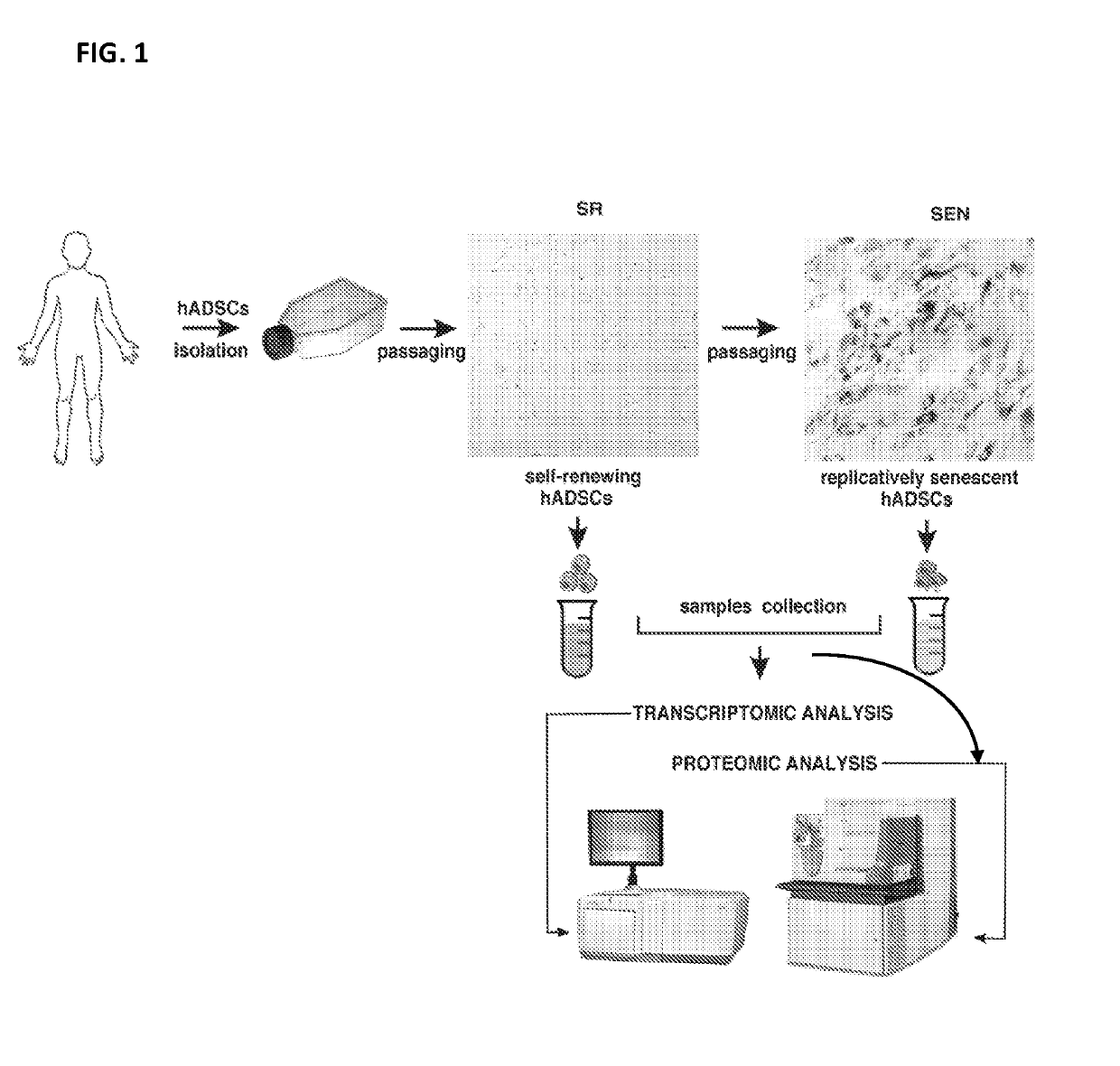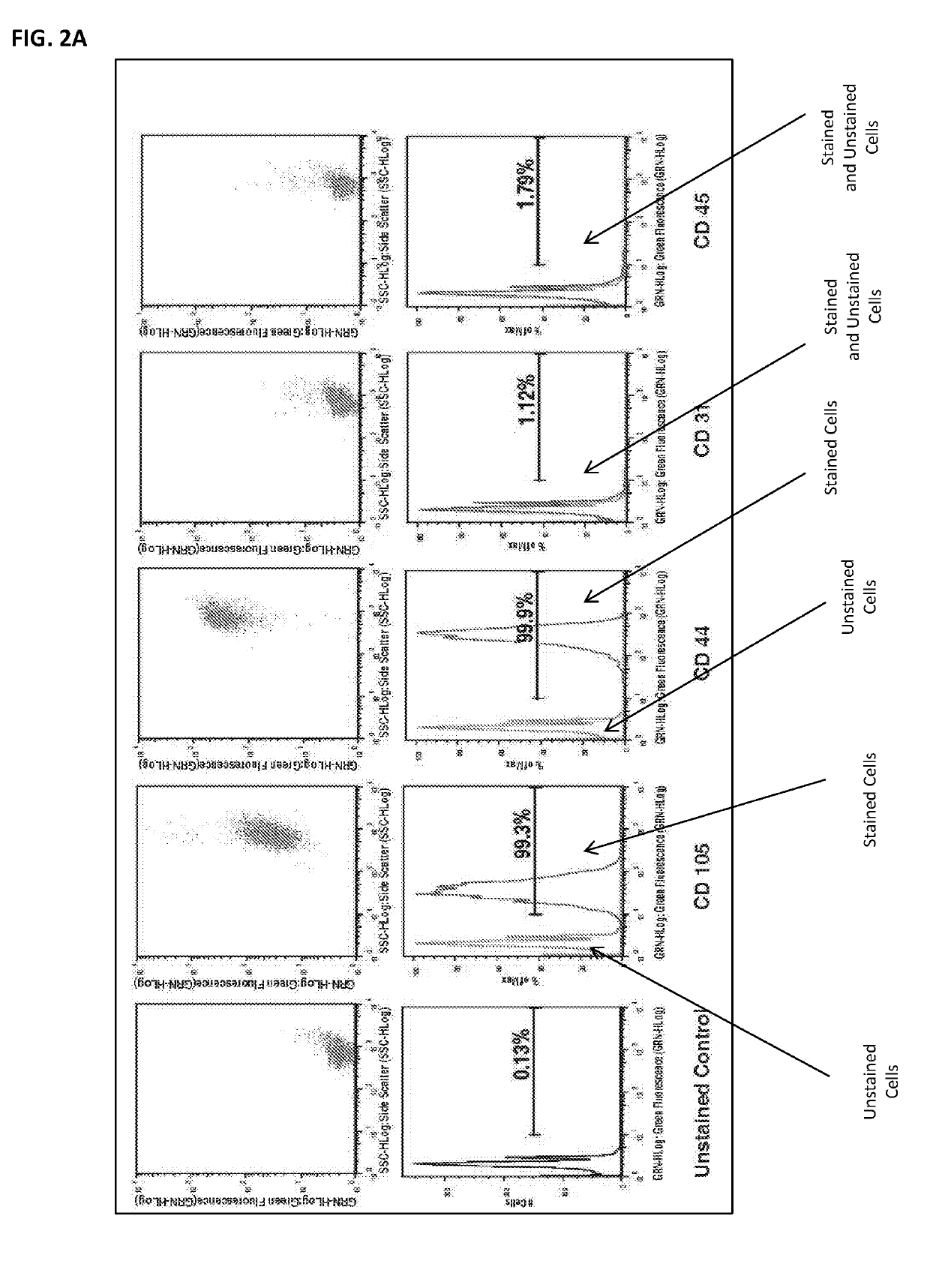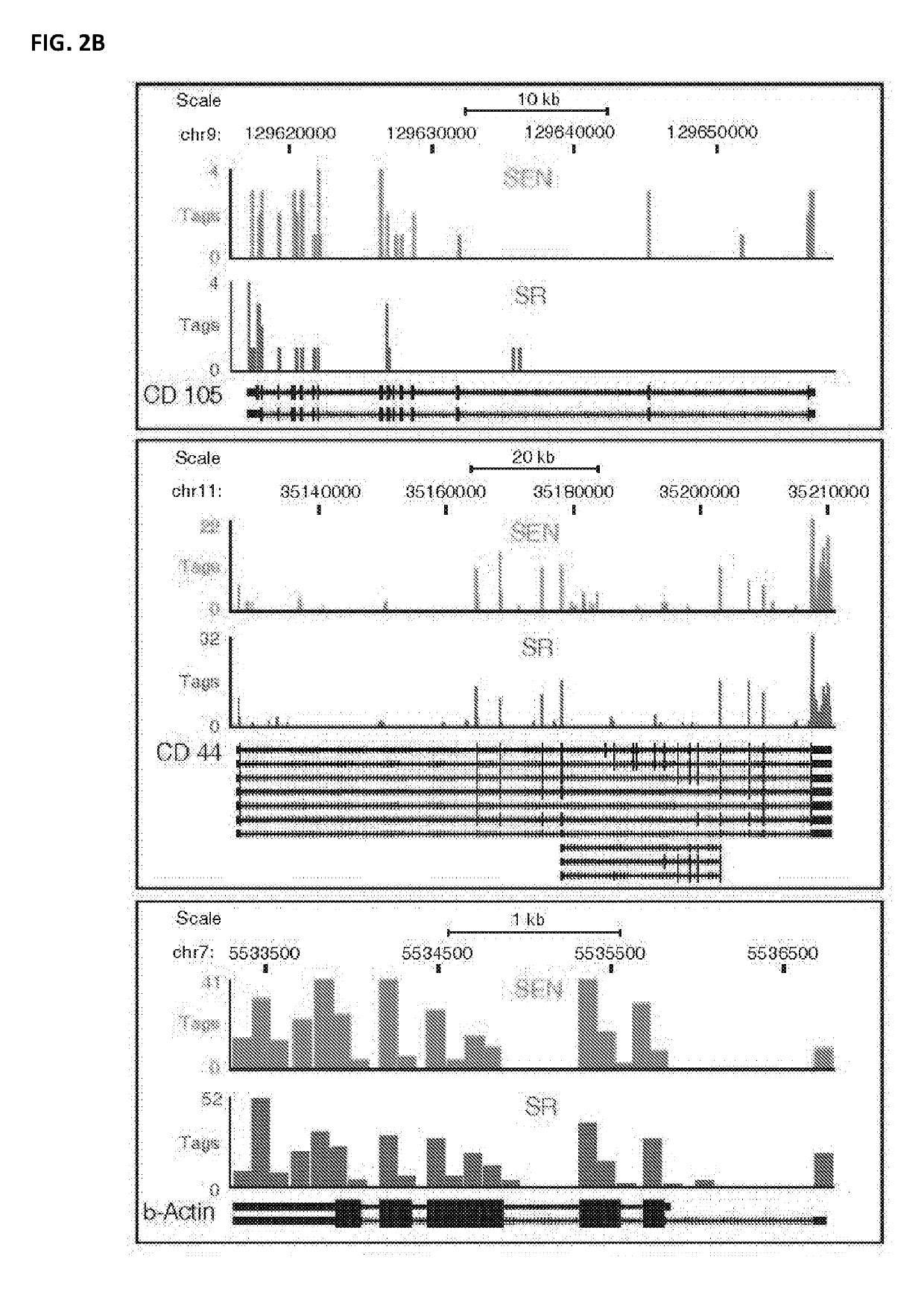Compositions and methods for the quality control of stem cell preparations
- Summary
- Abstract
- Description
- Claims
- Application Information
AI Technical Summary
Benefits of technology
Problems solved by technology
Method used
Image
Examples
example 1
ve Senescence of Human Adult Adipose-Derived Stem Cells is Associated with Changes in Expression
[0065]This example shows differential gene expression in SR and SEN cells.
Isolation and Culture of hADSCs
[0066]Human adipose derived stem cells (hADSCs) were isolated from human subcutaneous white adipose tissue collected during liposuction procedures. The lipoaspirate was suspended in Hank's Buffered Salt Solution (HBSS, Life technology), 3.5% Bovine Serum Albumin (BSA, Sigma), 1% Collagenase Type II (Sigma) in 1:3 w / v ratio and shaken at 37° C. for 50 min. The cells were filtered through a 70 μm mesh cell strainer (BD Falcon #352350), treated with Red Blood Cell Lysis buffer (150 mM NH4Cl, 10 mM KHCO3, 0.1 mM EDTA, pH 7.3), and expanded ex vivo in DMEM / F12 complete medium (DMEM / F12, 10% FBS, 100 U / ml penicillin, 100 μg / ml streptomycin; Life technology) in 10% CO2 at 37° C. and passaged at 80% confluency, changing medium every 72-96 h. Cumulative population doublings were calculated by s...
example 2
ialExpression of microRNAs upon Replicative Senescence of hADSCs
[0085]This example shows differential expression of microRNAs (miRNAs) upon SEN of hADSCs.
[0086]Upregulation of functionally antagonistic MIR17HG and MIR100HG miRNA-bearing loci upon senescence was further investigated. The human chromosome 13 MIR17HG cluster (800 bp) encodes six tightly grouped miRNAs with four distinct “seed” sequences (Khorshid, Hausser et al. 2013, Hausser and Zavolan 2014): mir-17, mir-18a, mir-19a, mir-20a, mir-19b1, and mir-92a1 (schematically shown in FIG. 5C). The miRNAs from this locus have been designated as onco-miRNAs because of their importance in cell transformation and tumorigenesis (Kent and Mendell 2006, Mendell 2008). The chromosome 11 MIR100HG cluster houses three microRNAs (mir-125b1, mir-let7a-2, mir-100) situated within a comparable genomic distance (FIG. 5D).
[0087]miRNAs are frequently transcribed together as polycistronic primary transcripts that are processed into multiple indi...
example 3
ation of the Targets of SA-microRNAs
[0095]This example characterizes the downstream gene targets of senescence associated miRNAs, using a combination of transcriptome and proteome analysis.
[0096]Despite the availability of miRNA target prediction algorithms, it still remains a challenge to accurately predict the potential target genes of a given miRNA. A number of these prediction algorithms use sequence, contextual, structural and / or evolutionary constraints and rely on subsequent validation of the targets by large scale mRNA expression level assessment (Sethupathy, Megraw et al. 2006). However, transcriptional analysis of miRNA target genes does not fully reveal the extent to which miRNAs can exert control on protein expression levels, which have a tendency to change more dramatically than mRNA levels (Liu 2008, Selbach, Schwanhausser et al. 2008, Hausser and Zavolan 2014).
[0097]Thus, an integrated approach is taken here, as illustrated in FIGS. 1, 3, and described in Example 1 to...
PUM
| Property | Measurement | Unit |
|---|---|---|
| Volume | aaaaa | aaaaa |
| Volume | aaaaa | aaaaa |
| Fraction | aaaaa | aaaaa |
Abstract
Description
Claims
Application Information
 Login to View More
Login to View More - R&D
- Intellectual Property
- Life Sciences
- Materials
- Tech Scout
- Unparalleled Data Quality
- Higher Quality Content
- 60% Fewer Hallucinations
Browse by: Latest US Patents, China's latest patents, Technical Efficacy Thesaurus, Application Domain, Technology Topic, Popular Technical Reports.
© 2025 PatSnap. All rights reserved.Legal|Privacy policy|Modern Slavery Act Transparency Statement|Sitemap|About US| Contact US: help@patsnap.com



